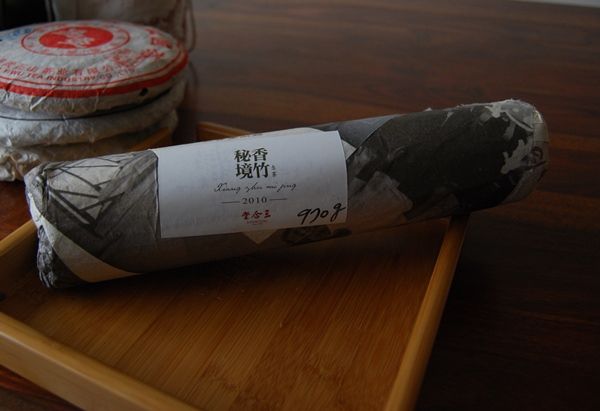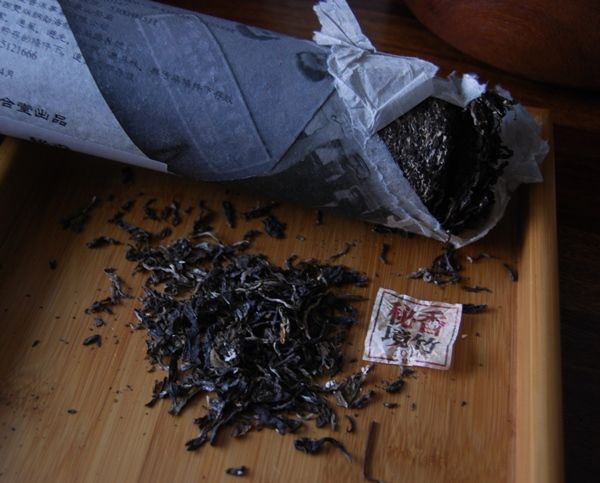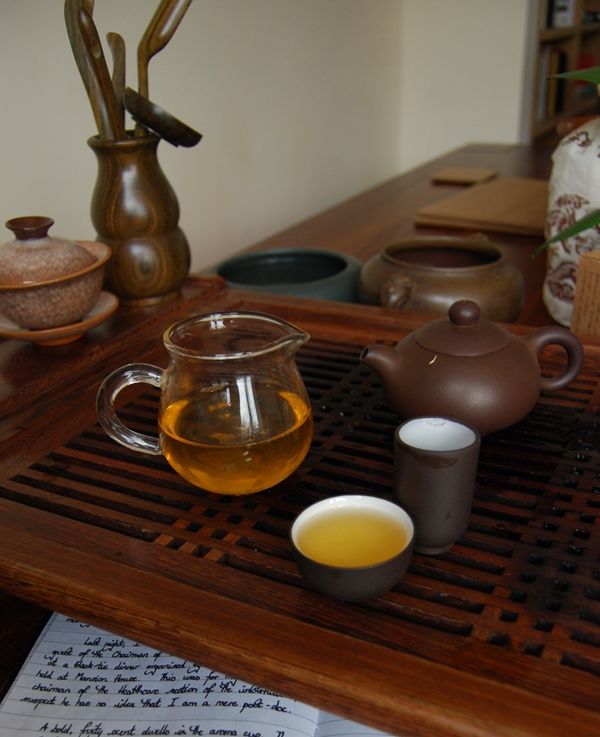Back in the Good Ol' Days, when we Westerners were almost entirely naive in the way of pu'ercha, there were but a handful of merchants that would sell decent tea. I remember with fond recall, the frantic rush that took place whenever Houde, one of the merchants in question, listed a new Xizihao cake.
Thank heavens that those days of boom and bust, of wild purchasing without sampling, of suggestively inflated profit margins, have long past, leaving us wizened old wrinklies with the mature market for which have so long desired.
If only 'twere so, for this startlingly-priced Xizihao offering from Houde sold out in under three femtoseconds.
Xizihao, once the only brand in many buyer's minds, has since been supplanted by a wide range of solid producers, both Western and Eastern. As the proprietor of Houde seems to have taken a step back from the tea business, the introduction of "XZH" cakes into the Western market has subsequently slowed. We have much for which to thank Dr. Lee: alongside the many and varied cakes that we have all enjoyed over the years, he is also responsible for the enduring legacy of the name of this brand being spelled incorrectly throughout the Western-speaking internet.
It seems that the "xiangzhutong" [fragrant bamboo tong] that I acquired was the absolute largest of the bunch, weighing in at 970g, which is the equivalent of just over two-and-a-half normal bing. I was told that this was the last one on sale, which explains its enormity. The bamboo casing has been removed, and the tea is presented as a tightly-compacted cylinder, wrapped in paper, pictured above.
The leaves are from the Bulangshan region, which is an area that covers a vast quantity of terrain, and can mean almost anything, in terms of tea character. Quite a few productions from this area are aggressive, thinking back over recent examples.
Shown above, the leaves are whole, yet quite small. They have a strong aroma of clean, orthodox sweetness.
Little flecks of beige gunge are attached to the cylinder of tea, which are assumedly the flesh of the bamboo stalk.
It is bold and fruity in both aroma and tasting cups. The body is thick, and I appreciate the light processing, which is evident only as a strong butteriness in the finish. Menthol vapours act on the nasal passages, while the caffeine and chaqi give me a boost. It is fresh, tidy, and exhibits no roughness.
Xizihao have become very good at selling well-rounded, solid teas that tend to shy away from the more punishing end of the shengpu spectrum. At around £38 for a bing-equivalent, this is not the most expensive Xizihao, and I feel this in the quality of the tea.
It is tidy and good, but perhaps absent the complexity that would elevate it into a higher class.




No comments:
Post a Comment
(and thanks)